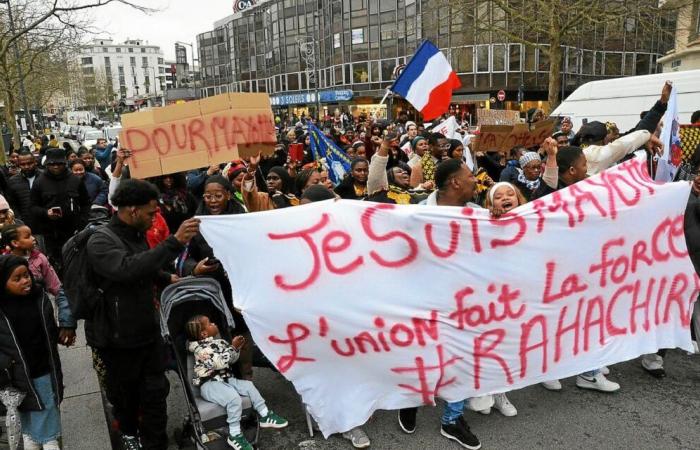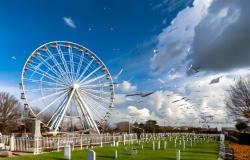
“I have no news from my father, my brothers and sisters. I am very worried. » Originally from Mayotte, Charkane, based in Rennes, has been living in anxiety since Cyclone Chido ravaged the archipelago on Saturday December 14. A week later, the young 23-year-old Mahorais and 150 people from the archipelago located in the Indian Ocean, between Madagascar and the Comoros, marched in the city center of Rennes to ask for help for their families and friends who stayed there.
“They tell me they are fine, but it’s to reassure me”
A week after the disaster, Charkane is still desperately trying to call his father. Saturday afternoon, he tries again, like every day. In vain. “Look, it doesn’t even ring. I don't know if he's alive. My grandfather is the same thing. I just know that his tin house was destroyed.” The Rennais has only heard from his cousin, who assures him that she is well. “But we come from a mountainous region. In the morning it's cold and without heating it's very hard. »
Mouzi was able to get news from her sisters, nephews and nieces. But little by little. “The last time I had them was Monday. Since then, nothing. They live in the north of Mayotte. As the trees are all on the ground, their village is inaccessible to rescuers. They told me they were fine, but I know they only told me that to reassure me. There are a lot of deaths. They start to bury them because there is a smell of death everywhere.” Devastated, the young woman has a hard time being away from her loved ones, more than 8,000 km away. “Physically, I am there, but psychologically, I am very bad. I am elsewhere. »
“We are afraid of famine”
A little further in the procession, Attoumani, at the origin of the gathering, is angry. “Why didn’t the infrastructure hold up? Because there are too many DIY projects in Mayotte! We want real infrastructure for future generations.” Above all, everyone is distressed by lack. Drinking water, food. “My parents and siblings’ house was destroyed, but they are all okay. We are especially afraid of famine,” says Amina, 22 years old. “I’m worried about tomorrow. Will they hold out until help arrives?, fears Chahari. They wash and eat in the river and those with health problems cannot be helped. In my village, a man had a stroke when he saw the damage and died.”
Everyone collects what they can: drinking water, canned goods, pasta, which they plan to send by container. This Saturday, water was distributed to Mamoudzou, the capital of the archipelago, and power was restored there. But what about more remote areas?





